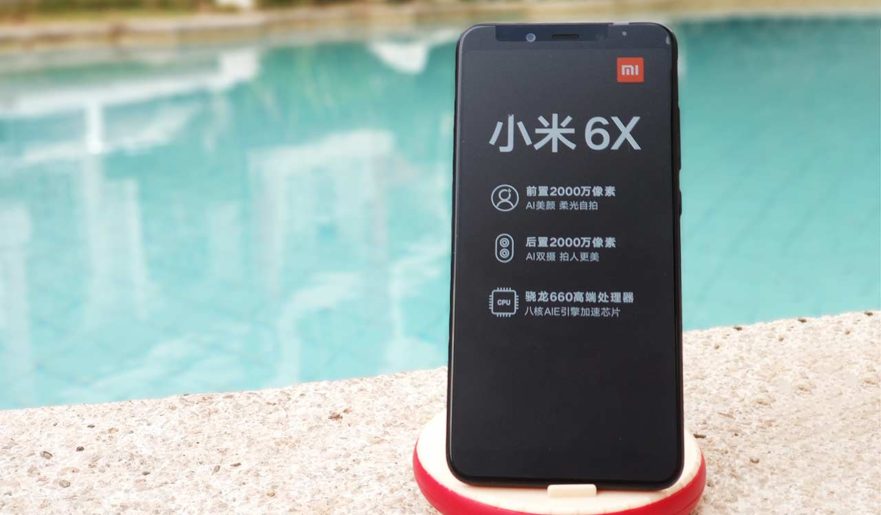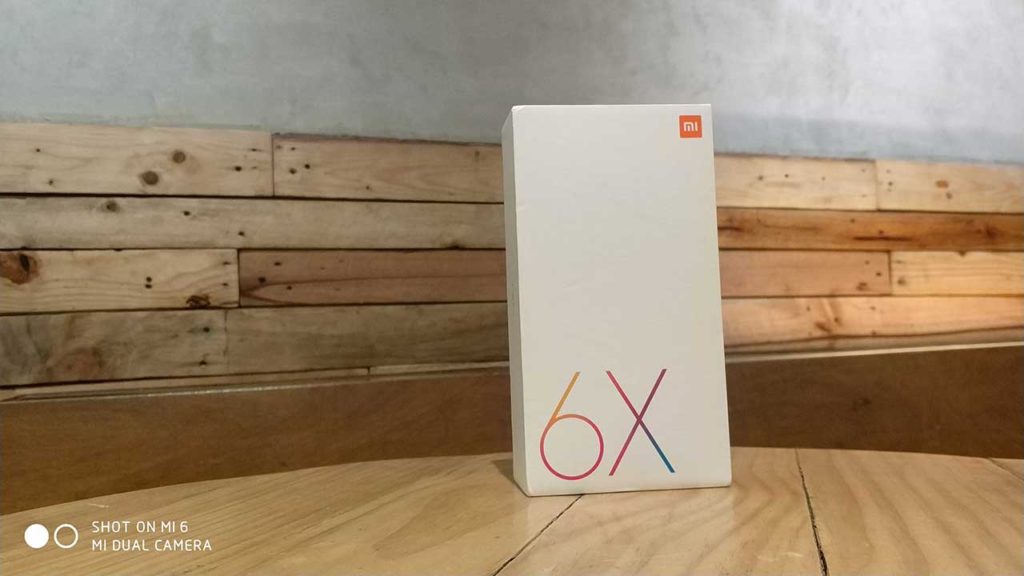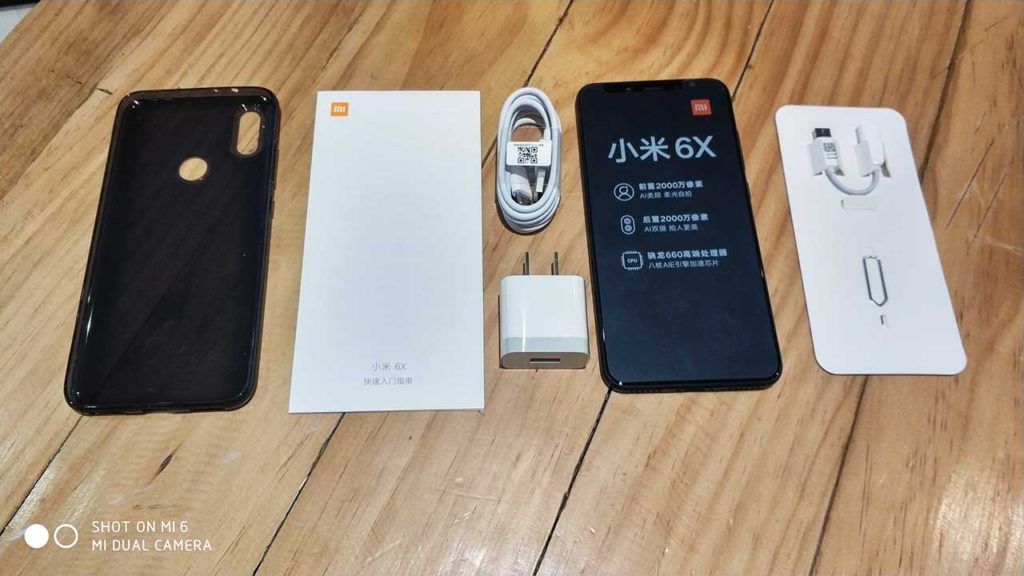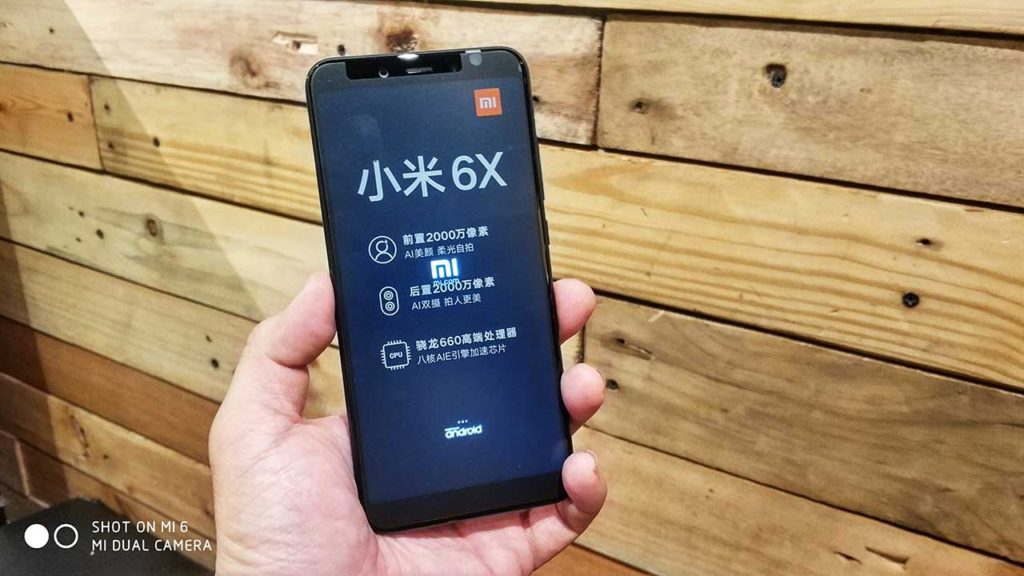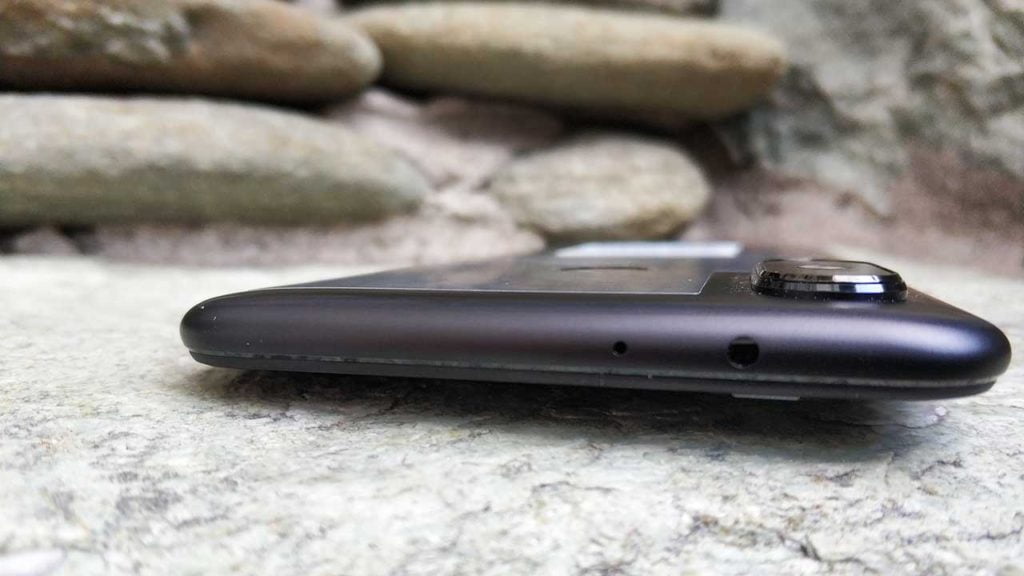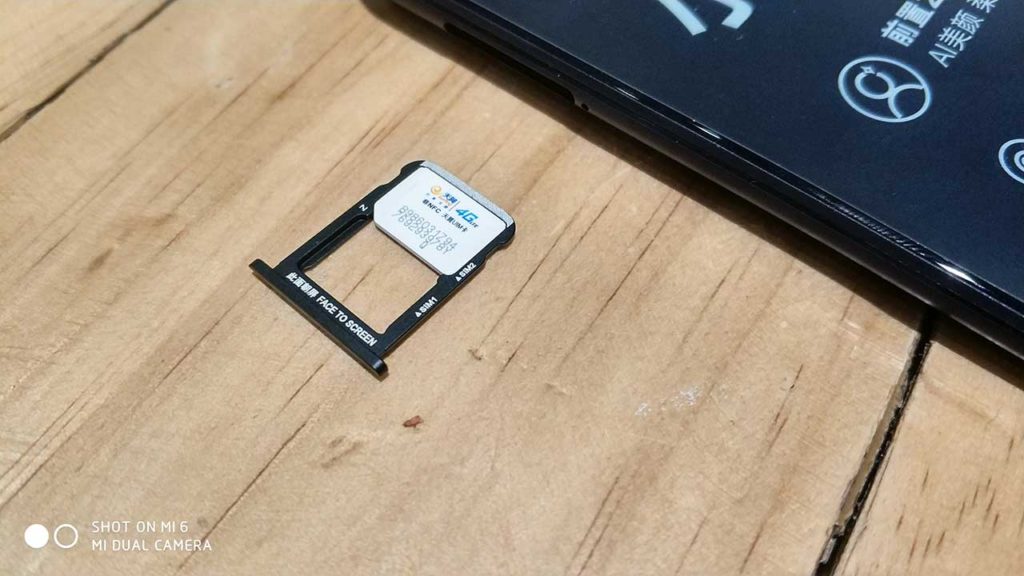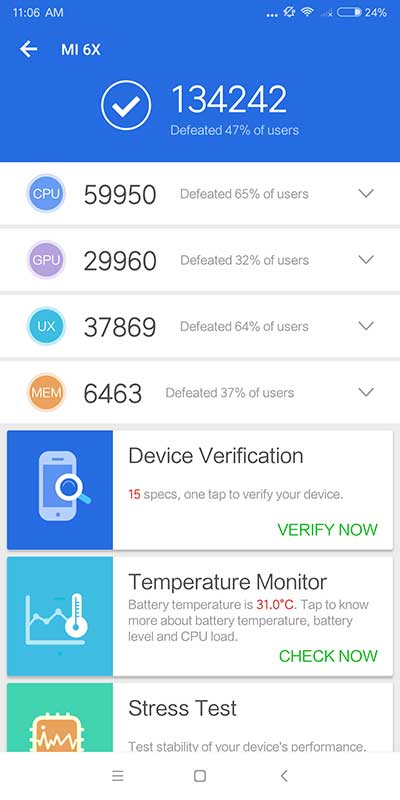The smartphone announcements from Xiaomi, now one of the biggest names in the business, have been fast and furious lately.
(The author, whose passion is to review whatever Xiaomi releases, is a contributor at Revü Philippines.)
READ ALSO: Xiaomi Redmi 5A joins Top 6 Bestselling Smartphones in Q1 2018 list
And after launching the Redmi Note 5 in its home country of China — and soon, the Philippines — the company has turned our attention to the Mi 6X, the successor to the popular Xiaomi Mi 5X, or what is known as the Xiaomi Mi A1 Android One phone internationally. Read on below for my thoughts on this new midranger.
Design
The Xiaomi Mi 6X sports a different design language from 2017’s Mi 5X. It still has a thin unibody shell with a brushed-aluminum finish, but this time around, Xiaomi deploys an 18:9 screen ratio for the 6-inch display. The overall design is a head-turner.
The dual cameras at the back are vertically aligned and similar to the orientation found in the Xiaomi Redmi Note 5 and Mi MIX 2S. The rear cameras on the Mi 5X are positioned in landscape orientation. The cameras of the Mi 6X are also protruded, which leaves them more prone to scratches.
One thing I did miss from the Mi 5X was additional storage space via microSD, which the Mi 6X doesn’t have. You can fit two nano SIMs inside the phone.
Connectivity
The Xiaomi Mi 6X supports 12 different bands, which is fine since this model likely won’t be released outside of China. Instead, it might be known as the Xiaomi Mi A2 and will be an Android One phone for the non-Chinese markets. It’s easy to switch between carrier networks in the settings.
SEE ALSO: Xiaomi Mi A1 Android One phone review: Pure Android all the way
Both SIM slots support 4G LTE networks, as well as dual-standby functionality. Connecting to 4G LTE and 3G networks in the Philippines proved to be a non-issue. As with most other contemporary devices in its class, this unit offers Wi-Fi Direct; wireless mirroring via the Miracast standard; Bluetooth 5.0; and GPS with GLONASS capability for a better navigation experience using apps like Google Maps.
Display and audio
The full-HD LCD screen runs at the taller 18:9 picture format, making it well-suited for movies and TV shows. I watched several hours of video content on the Mi 6X and came away impressed.
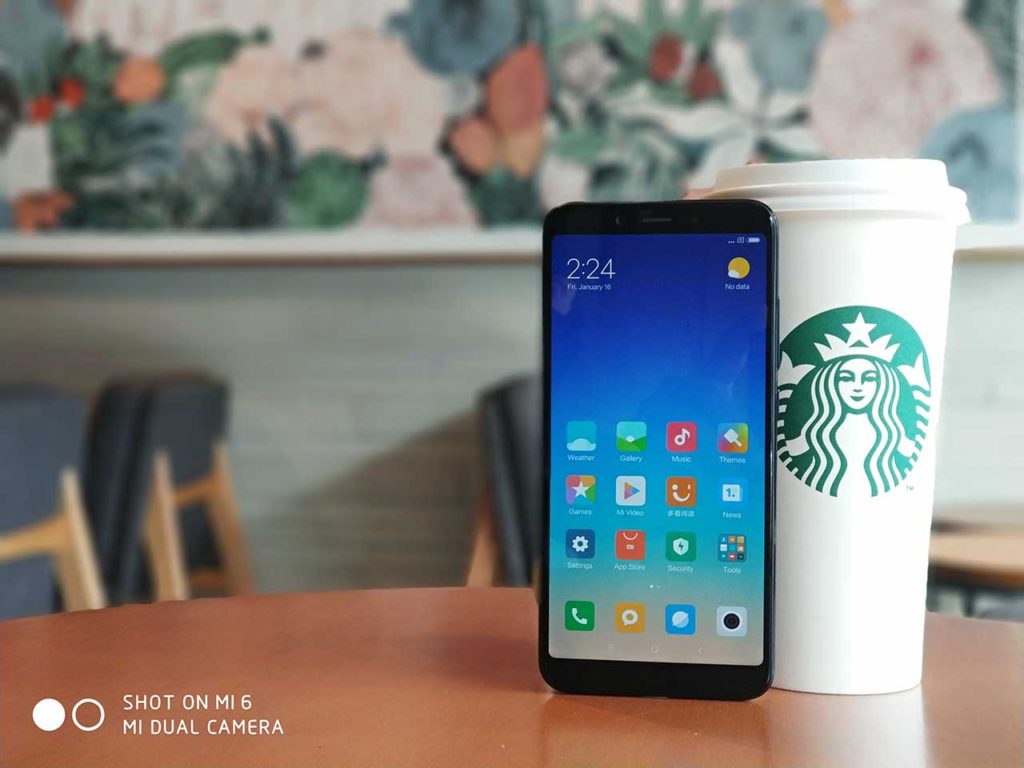
The full-HD LCD screen runs at the taller 18:9 picture format, making the Xiaomi Mi 6X well-suited for movies and TV shows.
Sound from the loudspeaker unit is also good, but it doesn’t get very loud like the speaker on the Xiaomi Mi Note 3. As there is no headphone jack, you’ll have to use the included audio adapter if you want to connect a set of wired headphones to the phone.
Qualcomm Snapdragon 660
The Mi 6X is only the second device of Xiaomi to use the Qualcomm Snapdragon 660 chipset, the other being the Mi Note 3. It’s one of the more powerful chips out there, capable of playing heavier games and multitasking without breaking a sweat.
READ ALSO: New NBA 2K Mobile game is a lot like NBA 2K18, but free
NBA 2K18 and PUBG Mobile run smoothly on the Xiaomi Mi 6X, though the phone can feel a little sluggish after a couple of hours of gaming. In my experience, dropped frames were more noticeable in NBA 2K18 than PUBG. Running multiple apps in the background doesn’t seem to have a huge impact on my unit’s performance. Antutu Benchmark gave it a score of 134,242 points, which is a good score in the midrange.
As expected, the Snapdragon 660 performs better than the Snapdragon 625 both in synthetic and real-world tests.
Camera
Every time I get my hands on a new device, I always take a good look at camera performance, as this probably is the most important aspect of a smartphone. How good will it be in terms of capturing memories for the user?
SEE ALSO: Xiaomi Mi MIX 2S review: Stunning outside, powerful inside
Fortunately for Xiaomi, the Mi 6X does not disappoint. The specs look impressive, to be honest, and this is the first time the company has opted to include three Sony camera sensors on a device — two at the back, one up top the display.
READ ALSO: Xiaomi Black Shark review: Ultimate Android gaming phone
The Snapdragon 660 employs artificial intelligence or AI to take better pictures using either optics, and as a result, the Mi 6X does a superior job of recognizing which settings to use in specific shooting situations.
Sample photos taken with the Xiaomi Mi 6X
The AI feature in auto mode appears to work well most of the time. The main camera system takes good photos in daylight, while low-light performance is vastly improved over the Mi 5X. As per usual, the phone functions best outdoors, taking crisp and colorful shots with plenty of detail. Portrait mode is well-integrated, as expected from the high-quality Sony IMX486 sensor. You can also shoot selfies with some background blur.
[sciba leftsrc=”https://www.revu.com.ph/wp-content/uploads/2018/05/Xiaomi-Mi-6X-A2-sample-selfie-no-bokeh-review-price-specs-Revu-Philippines-c.jpg” leftlabel=”No bokeh effect” rightsrc=”https://www.revu.com.ph/wp-content/uploads/2018/05/Xiaomi-Mi-6X-A2-sample-selfie-no-bokeh-review-price-specs-Revu-Philippines-b.jpg” rightlabel=”Portrait mode” mode=”horizontal” width=””]Selfies captured on the Xiaomi Mi 6X: No bokeh effect vs with bokeh effect
Manual mode offers plenty of controls, including shutter speed and ISO, but optical image stabilization is not available according to the camera settings.
Battery life
I was able to get a reasonable battery rating out of the Mi 6X. It doesn’t last as long as other Xiaomi models I’ve tested. The 3,010mAh unit isn’t a lot, but it does make for a thinner profile. PCMark’s battery test reported 7 hours and 4 minutes of screen-on time, which is quite low for a device of this type.
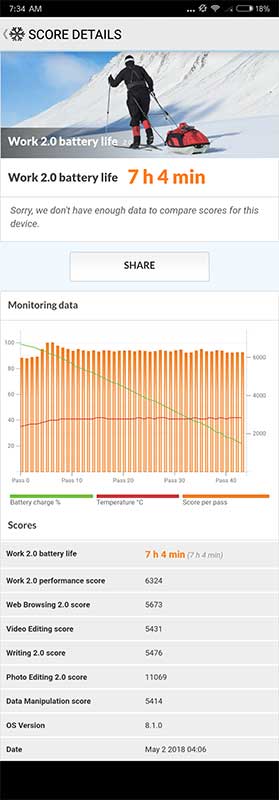
PCMark’s battery test reported 7 hours and 4 minutes of screen-on time on the Xiaomi Mi 6X. Real-world performance? The phone doesn’t last as long as other Xiaomi models I’ve tested indeed.
The good news is that Qualcomm’s Quick Charge 3.0 standard is part of the phone’s feature set. With it, you’ll see faster charging times using a compatible charger. The Xiaomi Mi 6X charges quickly based on experience. An hour and a half plugged into the wall juiced up the battery from 19 percent to full on one occasion.
Xiaomi Mi 6X prices
In China, the base Mi 6X with 4GB RAM and 64GB storage sells for ¥1,599 (around P13,038 or $252). The 6GB RAM and 64GB variant costs ¥1,799 (P14,669 or $283), while the top-end model with 6GB RAM and 128GB storage is ¥1,999 (P16,300 or $315).
Final thoughts
All told, is the Xiaomi Mi 6X a fine midrange phone and a worthy upgrade from the Mi 5X? No doubt, the answer is a big yes. In terms of design and performance, it’s right up there in the category. This will likely turn out to be one of the market favorites, especially for those who are not too concerned about battery life.
Xiaomi Mi 6X specs
- Fingerprint reader (rear-mounted)
- 6-inch LCD display, 2,160 x 1,080 resolution (18:9)
- Octa-core Qualcomm Snapdragon 660 processor
- 4GB/6GB RAM
- 64GB/128GB non-expandable storage
- Dual 20-megapixel and 12-megapixel rear cameras with 2x optical zoom, LED flash
- 20-megapixel front camera
- 3,010mAh battery
- Android 8.1 Oreo
Share this Post


